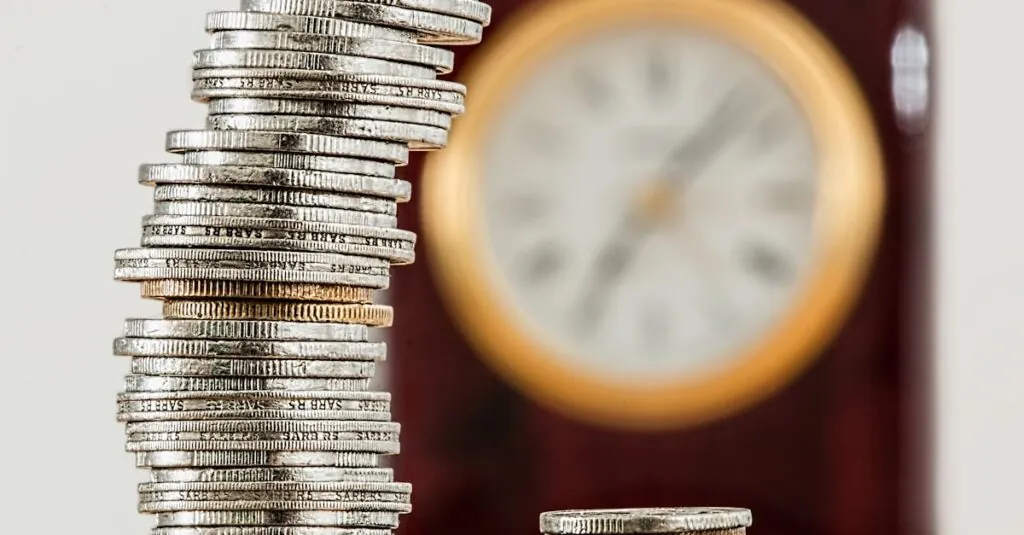Money, the little rectangular pieces of paper and shiny coins that somehow govern our lives. Have you ever wondered how something so simple can hold so much power? It’s not just about buying groceries or treating yourself to a latte: money serves three key functions that keep our economy chugging along smoothly. Let’s jump into these functions and explore just how money operates in our lives, even while it remains a mysterious force. Stay tuned: it’s going to be a fascinating ride.
The Medium Of Exchange

Money primarily acts as a medium of exchange. In essence, it facilitates transactions by eliminating the need for barter systems, where goods must be exchanged directly. Imagine trying to trade your retro video game collection for dinner, finding someone with the exact opposite desire could be quite a challenge. Money simplifies this process, enabling people to trade their products and services more efficiently.
Characteristics Of An Effective Medium Of Exchange
An effective medium of exchange has several essential characteristics:
- Divisibility: Money can be broken into smaller units, making it easier to manage transactions of varying sizes. Ever tried to pay $5.25 in apples with a $20 bill? Divisibility saves the day.
- Portability: It should be easy to carry around. Nobody wants to lug around a bar of gold for a quick coffee run.
- Durability: Money needs to withstand the wear and tear of daily use. Think about how crumpled cash gets after a day in the pocket.
- Uniformity: Each unit should be identical in value. This ensures consistency, just like how every quarter holds the same value as any other quarter.
- Limited Supply: Too much money can lead to inflation, so having a controlled supply helps maintain its value. A delicate balance, indeed.
Examples In Modern Economies
In our contemporary economy, cash, credit cards, and digital currencies serve as the primary mediums of exchange. Cash remains the old faithful, while credit cards offer the convenience of not needing to carry cash. Digital currencies like Bitcoin are the new kids on the block, presenting a decentralized alternative. Each has advantages, but they all fulfill that essential role of facilitating trade, ensuring the economy keeps buzzing along.
The Unit Of Account
Next up is the unit of account, which provides a standard measurement for valuing goods and services. This function allows for easy comparison and measurement, acting like the metric system for the economy. It provides clarity in an otherwise chaotic world of transactions.
Importance Of Standardized Measurement
Why is standardization crucial? Imagine going to the store and seeing prices in pounds, ounces, and dollars all mixed together. The confusion would be overwhelming. A consistent unit of account lets people understand the value of products without hesitation, ensuring fairness and transparency in pricing. It becomes easier to set and negotiate prices, eventually fostering healthy competition among businesses.
Real-World Applications
In practice, currencies like the US dollar or the euro serve as units of account in their respective economies. When a consumer sees a price tag, it’s not just a number, it’s a reference to the intrinsic value of the product based on supply and demand. This function aids in budgeting and financial planning, as financial reports and statements rely heavily on this common measuring stick. The clearer the accounting, the better decisions individuals and businesses can make.
The Store Of Value
Finally, money acts as a store of value, an asset that can retain value over time. This function is vital for saving and investment, allowing individuals to hoard wealth for future use.
Factors Affecting Store Of Value
But, not all forms of money are created equal when it comes to storing value. Factors such as inflation, economic stability, and even cultural perceptions play a role. For instance, if a country experiences hyperinflation, the local currency quickly loses value, turning savings into mere numbers on a screen.
Investment And Saving Strategies
To effectively use money as a store of value, individuals often turn to investments like stocks, bonds, or real estate. These assets generally appreciate over time, offering a hedge against inflation. Saving in a specialized account can also yield interest, preserving purchasing power for years to come. Recognizing the importance of long-term financial strategy helps individuals maintain their wealth and achieve financial goals.













